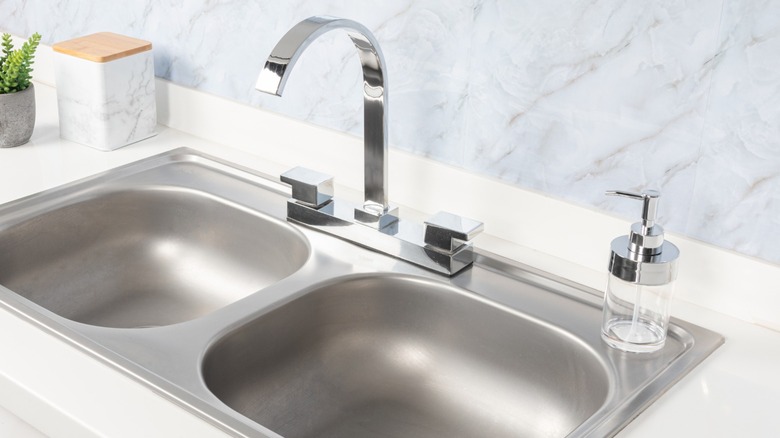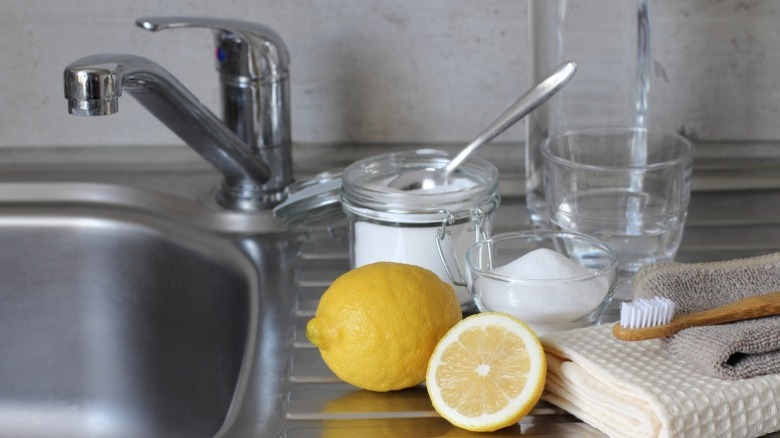Should You Be Pouring Vinegar Down Your Kitchen Drain?
Maintaining a healthy drainage system in your kitchen is no small task. For those that live in older apartments or have sinks sans a garbage disposal, making sure everything runs smoothly can be challenging — and, it can often be difficult to sort through what cleaning methods work and which are not as effective. There are a number of things you should never put down your drain, but if there's one thing you should, and that's vinegar.
As it turns out, one of the many uses for vinegar you may not know about is that it can be used to clean your drainage system without relying on harsh chemicals. Most pipes have what is called a "p-trap," which prevents sewer gasses from coming up to the sink. While this design is useful, its design also provides means the perfect environment for waste to accumulate and bacteria to grow. To combat this, you can pour a mixture of vinegar and water down the drain.
For these purposes, about a ½ cup each of vinegar and water should be enough. After pouring, do not run water through the pipes or sink for at least a few hours. This method will clean out any minor accumulations and will also ensure that your sink and drain are smelling as good as they can be. If you keep a big bottle of vinegar in your cabinet, you can repeat the process monthly to reduce sludge build up and odor.
Other factors to take into account
Besides being a solution to minor blockages, vinegar is better for your pipes than chemicals. Store-bought cleaners often contain harsh alkaline and acidic chemicals that can be harmful for you pipes your pipes, and especially for the environment. Vinegar offers an effective alternative. Plus, vinegar and water are much less expensive than commercial drain cleaners. But, there are some things you should take into account before you start using it regularly — specifically the kind of pipes your system has. Vinegar can be poured down newer PVC pipes, but metal pipes and older systems may not stand up to regular use due to its acidity.
While vinegar is effective for dealing with minor issues and regular drain maintenance, if you have a larger clog, you might need to find another solution. Vinegar is generally not powerful enough to clear blockages. However, you can use it in combination with baking soda to amp up its cleansing and de-clogging abilities. Baking soda is the secret ingredient to a sparkling clean coffee maker and beyond, because its chemicals are known to fight against odorous compounds. Simply pour about a ½ cup of baking soda in first and let it sit covered for 30 minutes to an hour. Then add 1 cup of vinegar and let everything marinate for 15 minutes, before running hot water to wash it all away. If you want an extra layer of protection against bad smells, add some lemon juice to the mixture too.

